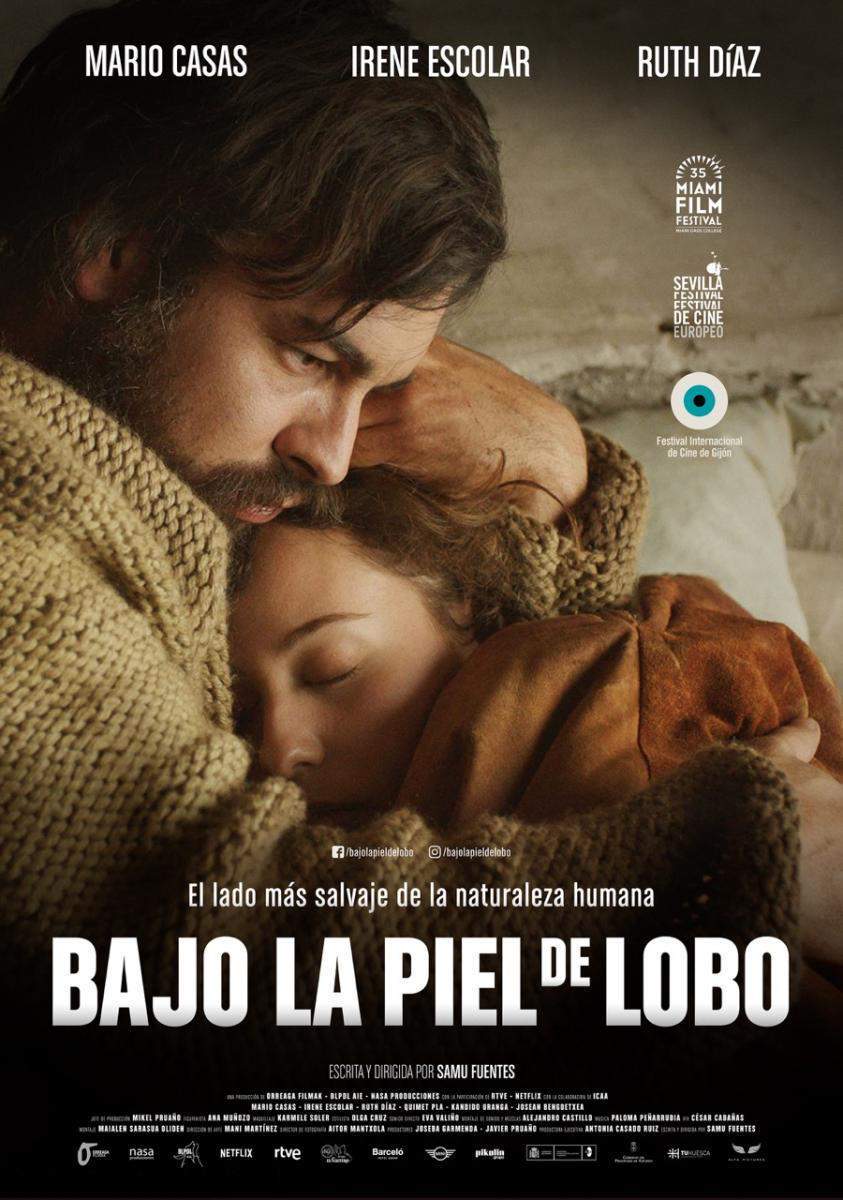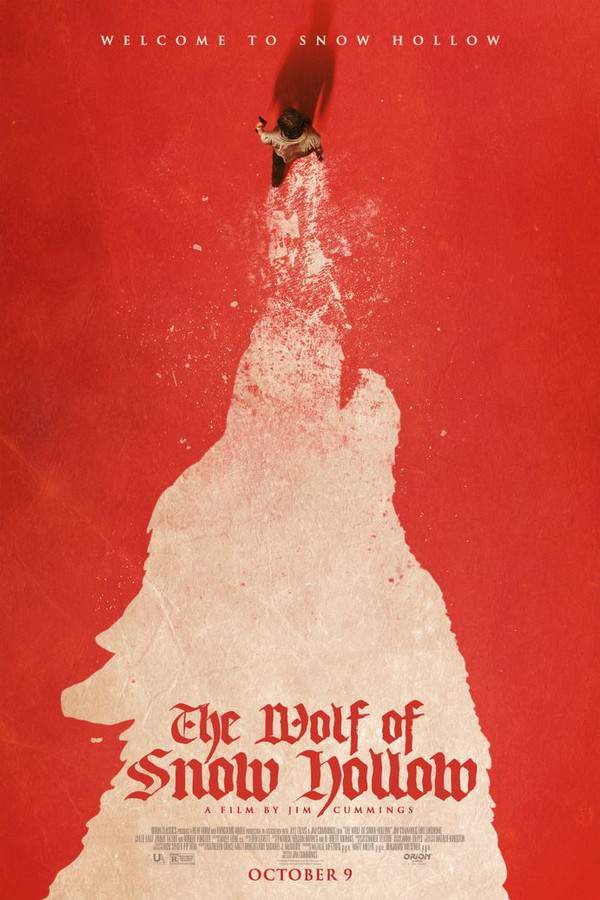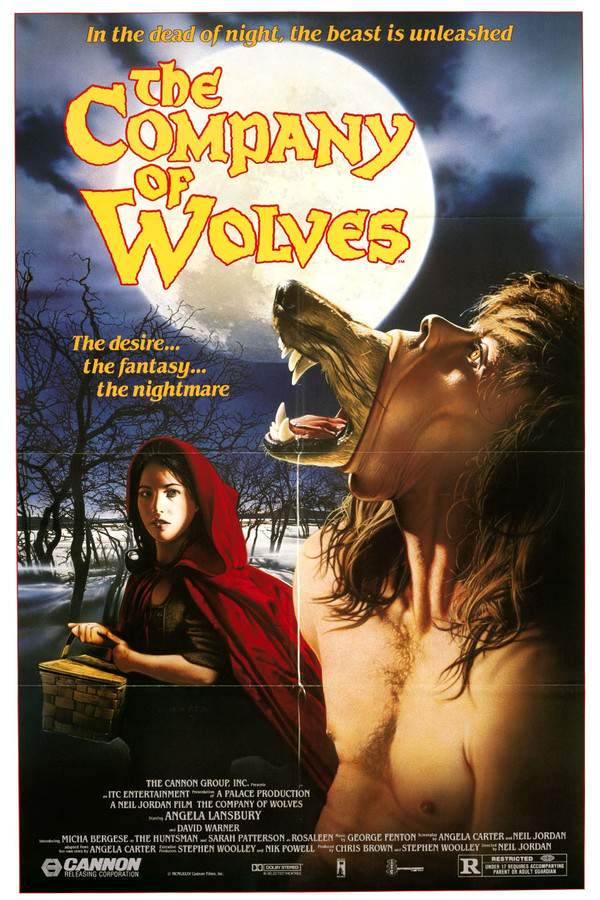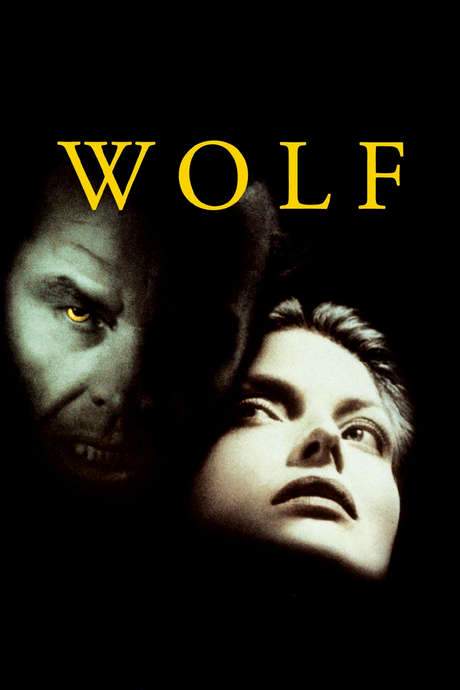
The Skin of the Wolf 2018
Directed by

Samu Fuentes
Made by

Netflix
Test your knowledge of The Skin of the Wolf with our quiz!
The Skin of the Wolf Plot Summary
Read the complete plot summary and ending explained for The Skin of the Wolf (2018). From turning points to emotional moments, uncover what really happened and why it matters.
Martinón is a lonely huntsman, residing on a desolate mountain high above the remains of an old town. His home is surrounded by rugged terrain and thick forests, abundant with wildlife, which he harvests for both sustenance and trade. Each day, he diligently maintains his property, sets traps for animals, looks after his goats, and hunts wolves to sell their pelts. His imposing figure—tall, muscular, with wild hair and a bushy beard—tends to frighten those who cross his path.
During one of his trips to the nearby village, Martinón seeks to collect payment for the wolf pelts from the local mayor. The mayor tries to negotiate a lower price, creating tension in their interaction. Amid the negotiations, Severino, the owner of the local tavern, proposes that Martinón consider marriage to secure a legacy for his home. Although the idea lingers in Martinón’s mind, he is quick to dismiss it, insisting that his rugged mountain existence is no fit place for a family. However, after a brief encounter with Pascuala, a local woman, Martinón engages in a relationship with her, ultimately striking a deal with her father, Ubaldo, and taking Pascuala as his wife.
As time goes on, Pascuala seems to adapt to mountain life, but she soon begins to show symptoms of a worsening illness, marked by persistent coughing. In a twist of fate, Pascuala reveals she is expecting a child, yet Martinón displays little reaction toward her pregnancy. Despite his stoic exterior, he crafts a cradle, perhaps in silent anticipation. Tragically, as Pascuala’s health declines during a harrowing pregnancy, she succumbs to complications while giving birth to a stillborn son, leaving Martinón in deep despair.
Overcome with grief, Martinón shatters the cradle he built for their child, and in a blind rage, he demolishes the gravestones of those buried in the nearby graveyard, directing his anguish toward Ubaldo whom he holds responsible for Pascuala’s fate. Ubaldo admits to having concealed his daughter’s illness and pregnancy to protect her reputation, leaving Martinón to confront him about his recklessness. The two exchange heated words, and in the end, Martinón gives Ubaldo until spring to repay the money he paid for Pascuala.
In a surprising turn, when Martinón returns to claim his money, rifle in hand, Ubaldo offers him his youngest daughter, Adela, as a bride. Reluctantly, Martinón accepts, and they marry the following day. Despite Ubaldo’s pleas for Adela to adapt and not flee, she embarks on a strenuous journey back to Martinón’s isolated home. The transition proves unbearable for her, as Martinón reveals his brutal nature, treating Adela more like property than a partner.
While Martinón departs for trading for several days, Adela is left to explore the ghostly remnants of the abandoned town and stumbles upon two open graves. When she inquires about them, Martinón dismisses her curiosity with an unsettling remark—> “they’re not graves, just holes.” This comment deepens her sense of entrapment and points to a bleak reality. Adela learns of the dark past involving the previous occupants and wears the weight of Martinón’s cruelty.
Days pass, and an unexpected revelation strikes Adela: she discovers she’s pregnant, leading to complicated emotions as Martinón maintains his unemotional demeanor. As time progresses, she grows intolerant of her harsh reality and plots to take matters into her own hands. Using the herbs given to her by her father, she poisons Martinón’s food, hoping to find her freedom. However, her escape is thwarted when she steps on one of Martinón’s traps, forcing him to find and care for her once again, only to witness her loss of the child through miscarriage.
After nursing her back to health, Martinón offers her the chance to return to her family. When she vacillates between joy and sorrow upon leaving, he reflects quietly, standing as a lonely figure against the cold expanse of the mountains. Left alone in his home, he later uncovers the poisonous herbs hidden by Adela and is filled with a profound sorrow, crying out in isolation. The film concludes with him alone in his darkened house, rifle at his side, the door ajar, inviting the chill of the snowy evening into his desolate life.
The Skin of the Wolf Timeline
Follow the complete movie timeline of The Skin of the Wolf (2018) with every major event in chronological order. Great for understanding complex plots and story progression.
Martinón's Isolated Life
Martinón lives a solitary life as a huntsman on a desolate mountain, surrounded by rugged terrain and dense forests. He hunts wildlife not only for sustenance but also for trade, maintaining a strict routine in his remote existence.
Visit to the Village
During one of his visits to the nearby village, Martinón seeks payment for the wolf pelts he has collected. His encounter with the local mayor intensifies as they negotiate, revealing the tension between them and the harsh realities of trade.
Proposal of Marriage
While negotiating the price for his pelts, Severino suggests that Martinón should consider marriage as a way to secure a legacy. The idea strikes Martinón but he quickly dismisses it, claiming that the mountain is no place for a family.
Relationship with Pascuala
After a brief encounter with Pascuala, a local woman, Martinón begins a relationship with her. This leads him to strike a deal with her father, Ubaldo, and ultimately take Pascuala as his wife, despite his earlier reluctance.
Pascuala's Illness
As time passes, Pascuala adapts to mountain life but soon shows symptoms of a worsening illness, which worries Martinón. In an unexpected twist, she reveals that she is pregnant, but Martinón remains stoic, betraying little emotion towards the news.
Tragic Loss
Pascuala's health continues to decline during her troubling pregnancy, leading to her tragic death while giving birth to a stillborn son. This loss deeply devastates Martinón, throwing him into a spiral of grief and anger.
Destruction of the Cradle
In a fit of despair, Martinón destroys the cradle he had crafted for their child. His sorrow turns into rage as he demolishes gravestones in the nearby graveyard, directing his anger towards Ubaldo for not protecting his daughter.
Confrontation with Ubaldo
Martinón confronts Ubaldo about his negligence concerning Pascuala’s health, leading to a heated exchange. Ubaldo reluctantly admits to concealing her condition and offers Martinón a timeline to repay the amount paid for Pascuala.
Second Marriage Proposal
When Martinón returns to collect his debt, he is unexpectedly offered Ubaldo's youngest daughter, Adela, as a bride. Though reluctant, Martinón accepts the offer and they marry the very next day.
Adela's Struggles
As Adela moves into Martinón's isolated home, she faces the harshness of her new life. Martinón's brutal demeanor and his treatment of her as an object further alienate her, sparking feelings of entrapment.
Adela Discovers Graves
While exploring the abandoned town near her home, Adela stumbles across two open graves, raising her suspicions about their origin. When she questions Martinón, his dismissive response deepens her sense of foreboding.
Adela's Pregnancy
Adela discovers she is pregnant and is torn by her complex feelings regarding her situation. Martinón's indifferent attitude further complicates her emotional turmoil, leaving her feeling increasingly isolated.
Attempted Escape
In an act of desperation to reclaim her freedom, Adela uses herbs given to her by her father to poison Martinón's food. However, her attempt fails when she accidentally triggers one of his traps, complicating her fate.
Adela's Miscarriage
After Martinón cares for Adela following her accident, she suffers a miscarriage, further deepening the tragedy of their life together. This event strains their relationship, showcasing the ongoing pain entwined in their lives.
Martinón's Desolation
After offering Adela the chance to return to her family, Martinón reflects on his solitary existence in the unforgiving mountains. Left alone with his memories, he discovers the poisonous herbs that Adela hid, leading to a moment of deep sorrow and isolation.
The Skin of the Wolf Characters
Explore all characters from The Skin of the Wolf (2018). Get detailed profiles with their roles, arcs, and key relationships explained.
Martinón (Mario Casas)
Martinón is a rugged and solitary huntsman, deeply connected to the harshness of his mountainous surroundings. His imposing physical presence and stoic demeanor mask a tumultuous inner world marked by grief and anger. As events unfold, his inability to connect emotionally leaves him in despair, highlighting his tragic isolation.
Pascuala (Ruth Díaz)
Pascuala is a local woman who initially seems to adapt to her new life with Martinón. However, her declining health and tragic fate reflect the harsh realities of life in isolation. Her character symbolizes love and vulnerability, emphasizing the emotional toll of her circumstances.
Adela (Irene Escolar)
Adela, Ubaldo's youngest daughter, is drawn into a harsh life with Martinón despite her initial hopes. As she grapples with her new reality, her character evolves from passive victim to active agent of change, seeking freedom from Martinón's oppressive existence.
Severino (Kandido Uranga)
Severino is the tavern owner and a voice of community wisdom, proposing the idea of marriage to Martinón as a means of securing a legacy. His character serves as a bridge between Martinón and the outside world, emphasizing the social connections that the protagonist struggles with.
Ubaldo (Armando Aguirre)
Ubaldo is Pascuala's father, embodying traditional values tied to reputation and family honor. His decision to conceal his daughter's illness reflects a protective nature that ultimately leads to tragedy, making him both a figure of authority and complicity in the story's events.
The Skin of the Wolf Settings
Learn where and when The Skin of the Wolf (2018) takes place. Explore the film’s settings, era, and how they shape the narrative.
Time period
The story unfolds in a timeless rural setting, likely reflecting an earlier era marked by simple living and close ties to nature. During this period, themes of survival and tradition are prevalent, where personal relationships often intersect with economic needs.
Location
Desolate Mountain, Abandoned Town, Local Village
The movie takes place in a desolate mountain setting, characterized by rugged terrain and thick forests. This secluded area is known for its wildlife, providing both sustenance and trade for the protagonist, Martinón. Nearby, the remnants of an abandoned town evoke a sense of loss and history, contrasting with the local village where crucial interactions take place.
The Skin of the Wolf Themes
Discover the main themes in The Skin of the Wolf (2018). Analyze the deeper meanings, emotional layers, and social commentary behind the film.
🌌
Isolation
Isolation is a central theme, as Martinón lives alone in the mountains, cut off from the world around him. This solitude affects his relationships and influences his reactions to the people he encounters. The stark landscape mirrors his emotional desolation, particularly after losing Pascuala and facing the consequences of his actions.
💔
Love and Loss
Love and loss are intricately woven into the narrative, particularly through Martinón's relationships with Pascuala and Adela. Their challenges highlight the fragility of love, especially under dire circumstances. The tragic loss of their child serves as a painful reminder of how love can be overshadowed by grief and retribution.
⚔️
Conflict
The movie explores conflict on multiple levels—between characters, within Martinón's own struggles, and the broader nature of man versus society. The tension between Martinón and Ubaldo reflects personal grievances that escalate into violence. Additionally, Adela's internal conflict and defiance against her entrapping situation underscore the human desire for autonomy.

Coming soon on iOS and Android
The Plot Explained Mobile App
From blockbusters to hidden gems — dive into movie stories anytime, anywhere. Save your favorites, discover plots faster, and never miss a twist again.
Sign up to be the first to know when we launch. Your email stays private — always.
The Skin of the Wolf Spoiler-Free Summary
Discover the spoiler-free summary of The Skin of the Wolf (2018). Get a concise overview without any spoilers.
In the crag‑filled highlands of rural Spain, a solitary huntsman tends to a rugged homestead perched above the ruins of an abandoned town. The landscape is a stark tapestry of pine‑scented winds, mute stone walls, and the distant howl of wolves that have made the mountains both his livelihood and his isolation. Within this austere world, Martinón moves with a quiet, imposing rhythm—his broad shoulders and weather‑lined beard suggesting a man forged by the land, yet his eyes reveal a yearning for something beyond the endless cycle of traps and trade.
The nearest village clings to the foothills, its modest streets alive with the murmurs of a community that both respects and fears the mountain’s guardian. Here, the tavern keeper Severino offers a rough‑handed hospitality, while the shy yet resilient Pascuala appears as a subtle invitation to the life Martinón has long kept at arm’s length. Their interactions are tinged with the unspoken tension of a man accustomed to solitude being nudged toward the possibility of partnership, a notion that is both alluring and unsettling within his fiercely independent world.
Later, the prospect of an unexpected union surfaces when Ubaldo—the protective father—brings forward his youngest daughter, Adela, as a potential companion for the reclusive huntsman. The offer hangs in the thin mountain air, a quiet test of whether Martinón will cling to his hard‑won autonomy or allow the faint stirrings of companionship to reshape the barren rhythm of his days.
The film breathes with a muted, almost elemental tone, where the relentless wind and the slow‑creeping snow echo the internal conflict of a man torn between the freedom of his isolated existence and the comforting pull of human connection. Every glance, every silent gesture hints at a deeper story waiting to unfold, inviting viewers to linger in the melancholy beauty of a life balanced on the edge of solitude and belonging.
Can’t find your movie? Request a summary here.
Movies with Similar Twists and Themes
Uncover films that echo the narrative beats, emotional arcs, or dramatic twists of the one you're exploring. These recommendations are handpicked based on story depth, thematic resonance, and spoiler-worthy moments — perfect for fans who crave more of the same intrigue.
Featured on this page

What's After the Movie?
Not sure whether to stay after the credits? Find out!
Explore Our Movie Platform
New Movie Releases (2026)
Famous Movie Actors
Top Film Production Studios
Movie Plot Summaries & Endings
Major Movie Awards & Winners
Best Concert Films & Music Documentaries
Movie Collections and Curated Lists
© 2026 What's After the Movie. All rights reserved.










